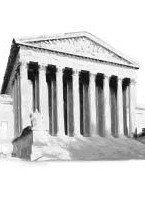Phenomenological Evidentialism
In this article I argue for a position I call evidentialism, which is mainly Husserlian. Evidentialism should be stationed in a middle road between foundationalism and coherentism. It differs from foundationalism in that it does not take evidences to be “infallible premises”; evidences are insights that might turn out to be wrong in the course of experience. But evidentialism cannot be a version of coherentism either. For the mere coherence among beliefs, rather than justifying them perfectly, needs to be constrained by experience. In first section my concern is with what we are to understand from “conceptuality”; there I try to situate evidentialism in terms of a moderate conceptualism. Yet the conceptuality I argue for is minimal, that is, taken in a narrower sense. It is not something we construct, but something we immediately see. Seeing what is meaningful reveals the constitutive conceptuality of our experience. The rest of the paper deals with Husserl and envisage him as a genuine evidentialist.
Anahtar Kelimeler:
Edmund Husserl, Conceptualism, Nonconceptual Content, Evidentialism, John McDowell
___
- CHISHOLM, Roderick (1973) The Problem of Criterion, Milwaukee: Marquette University Press.
- CONEE, Earl and FELDMAN, Richard (2004) Evidentialism. Essays in Epistemology, Oxford : Oxford University Press.
- CROWELL, Steven (2008) “Phenomenological Immanence, Normativity, and Semantic Externalism”, Synthese, vol. 160, iss. 3, (February 2008) pp.335-354
- DAVIDSON, Donald (2009) “A Coherence Theory of Truth and Knowledge”, in, Subjective, Intersubjective, Objective, pp. 137-153, Oxford: Clarendon Press
- HOPP, Walter (2005) Unpublished PhD Dissertation titled “Rehabilitating the Given” presented to the Faculty of the Graduate School University of Southern California University.
- HUSSERL, Edmund (1950) Die Idee der Phänomenologie. Fünf Vorlesungen. Hrsg. von Walter Biemel, Haag, Martinus Nijhoff.
- HUSSERL, Edmund (1959) Erste Philosophie (1923/24). Zweiter Teil: Theorie der phänomenologischen Reduktion. Hrsg. von Rudolf Boehm, Haag: Martinus Nijhoff.
- HUSSERL, Edmund (1969) Formal and Transcendental Logic, trans. D. Cairns, The Hague: Martinus Nijhoff.
- HUSSERL, Edmund (1973) Experience and Judgment, trans. J.S. Churchill, K. Ameriks, Evanston: Northwestern University Press.
- HUSSERL, Edmund (1983) Ideas Pertaining to a Pure Phenomenology and to a Phenomenological Philosophy: First book: General Introduction to a Pure Phenomenology, trans. F. Kersten, Dordrecht: Kluwer Academic Publishers.
- HUSSERL, Edmund (1984) Logische Untersuchungen. Zweiter Band: Untersuchungen zur Phänomenologie und Theorie der Erkenntnis. Hrsg. von Ursula Panzer, Haag: Martinus Nijhoff.
- HUSSERL, Edmund (1990) The Idea of Phenomenology, trans. W.P. Alston, G. Nakhnikian, Dordrecht: Kluwer Academic Publishers.
- HUSSERL, Edmund (2001a) Logical Investigations, vol. 1, trans. J.N. Findlay, Oxon: Routledge.
- HUSSERL, Edmund (2001b) Logical Investigations, vol. 2, trans. J.N. Findlay, Oxon: Routledge.
- HUSSERL, Edmund (2001c) Analyses Concerning Passive and Active Synthesis, trans. A.J. Steinbock, Dordrecht: Kluwer Academic Publishers.
- KANT, Immanuel (2000) Critique of Pure Reason, trans. and ed. Paul Guyer, Allen W. Wood, Cambridge: Cambridge University Press.
- LEWIS, Clarence Irwing (1970) “The Pragmatic Element in Knowledge” Collected Papers, ed. J:D. Goheen and J.L. Mothershead pp. 240-258, Stanford: Stanford University Press.
- LOCKE, John (2004) An Essay Concerning Human Understanding, ed. Roger Woolhouse, London: Penguin Books.
- MCDOWELL, John (1996) Mind and World, Massachusetts: Harvard University Press.
- MCDOWELL, John (2002) “Responses ” in Reading McDowell: On Mind and World, ed. N.H. Smith, pp.269-306, London: Routledge,
- SELLARS, Wilfrid (1991) Science, Perception and Reality, California: Ridgeview Publishing Company.
- Yayın Aralığı: Yılda 2 Sayı
- Başlangıç: 2002
- Yayıncı: Bursa Uludağ Üniversitesi
Sayıdaki Diğer Makaleler
Certitude and Scepticism as Complementary in the Search for Knowledge
İnsanın, İnsan Olmak Bakımından İşlevi Nedir?: Aristotelesçi Bir Bakış
Phenomenological Evidentialism
Felsefe Edebiyat İlişkisinin Değeri
Bilginin İmkânı Problemi: Gazali Örneği
Ferhat AĞIRMAN, Ahmed TÜRKMETİN
Ahlaki Etik Olanaklılığı Olarak Söylem-Etiği
Nietzsche’s Beyond Good and Evil: A Morality of Immoralism
Nesnelerin Bölümlenmesi Hakkında Bir Öneri
Habermas and the Impasse of Universalism
‘Felsefi Bilgelik’ ve (Evren Karşısında) ‘Hayranlık Duyma’ Kavramları Arasındaki İlişki Üzerine
